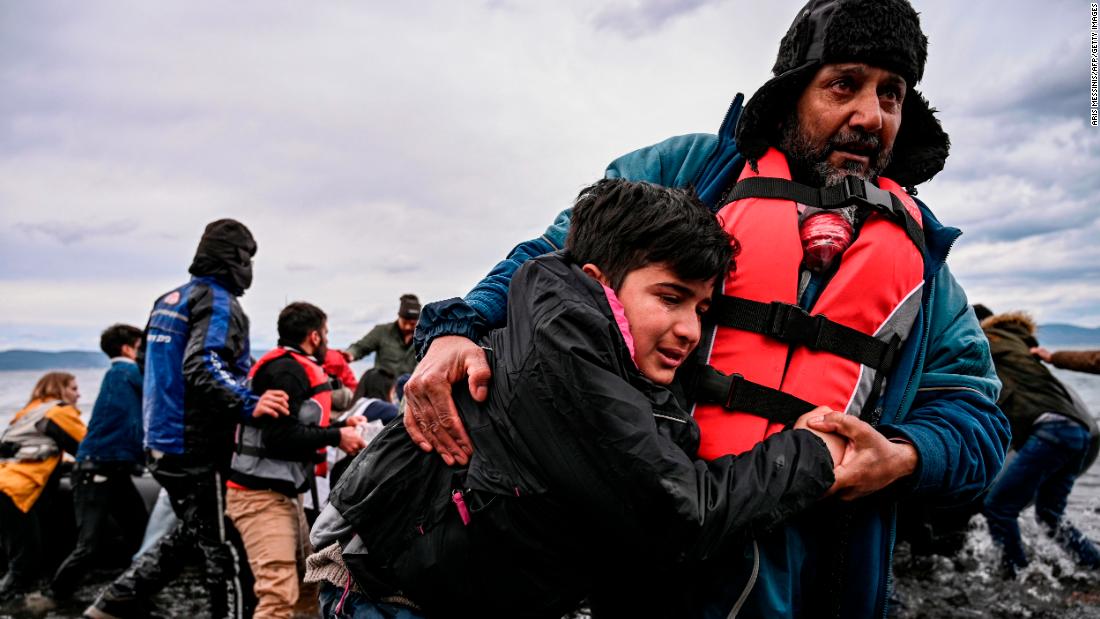[ad_1]
I think of this girl and so many others like her that I have had the privilege to meet — and I fear what lies ahead for them, as coronavirus infects more and more people across the world. Whether refugees in a foreign land or internally displaced within their own, the millions of people fleeing home — and living in camps like Washokani — face a set of alarming realities: a catastrophe that could spread where access to soap fluctuates, access to water is a luxury and access to health care is limited — at very best — and non-existent at worst.
The world may think it can close borders and tune out the fate of these people, but that is no longer the case. What reaches one displaced person’s camp will likely not remain there — and the consequences for the host countries could be severe.
In short, displaced people need quick, readily available and affordable coronavirus testing and functioning quarantining facilities in places where they now live. Additionally, what is needed is an awareness that women and girls must also be part of the solution to addressing — and stopping — the spread of the coronavirus.
“It really is a tinderbox waiting for the fire to rip through there,” Hardin Lang, a veteran of UN peacekeeping operations, and now vice president for programs and policy at Refugees International, told me. “It is hard to imagine that this isn’t going to be like Italy on steroids in a camp environment.”
Or, as Jan Egeland, Secretary General of the Norwegian Refugee Council, which provides relief to the displaced around the world, puts it: “When the virus hits overcrowded settlements in places like Iran, Bangladesh, Afghanistan and Greece, the consequences will be devastating. We must act now.”
These fears are felt with urgency by those on the front line of trying to help the displaced each day.
Many people now sleep in bombed-out buildings or in tents — or simply out in the open, exposed to the elements. “We are waiting on kits to diagnose coronavirus and bleach and disinfectants — there isn’t enough bleach to procure in northwest Syria,” says Qaddour.
Still, according to the WHO, Syria is considered a “very high risk” country due to do the ongoing war, a fragile health care system and large numbers of displaced people. Dr. Nima Saaed Abid, a WHO representative, told CNN on Monday that she expects to see a “significant number of cases.”
But tests aren’t the only issue. Many displaced people don’t have the ability to practice social distancing or shelter-in-place approaches to prevention. “We talk about the ability to stay home and be on lockdown, and we see people rushing to stores right now. That is not something you have in Syria — you are not able to prepare for what appears to be an apocalypse and go get a month’s worth of food,” Qaddour says. “You’re displaced, you are out in the open in a tent that might not even have a door and you cannot protect yourself from these threats… [including] the major threat of infectious disease.”
“It is almost a luxury to impose these sanitation requirements,” Qaddour tells me, urging the creation of more hand washing stations in camps closer to where women and girls sleep, as well as additional protective measures — such as possibly having security present in washing areas — so that girls and women could safely access these spaces.
To those who say that the displaced don’t matter at a time when borders are closing and coronavirus cases are spreading, medical facts say otherwise. Stopping coronavirus requires including the most vulnerable in the solution, and the most vulnerable includes those who have the least and have lost the most. The world’s 70 million displaced stand first and foremost among them.
And even if the idea of shared humanity doesn’t make you think this is urgent, self-interest must.
“Anywhere we have got large displaced populations, it is going to be impossible to segregate out their health from the health of the communities in which they are living,” Lang says. “It is not only the right thing to do from a moral perspective to include them in the response, but it is also the smart thing to do.”
Mustafa Al-Ali and Kamiron Sadoun assisted in translation for this piece.
[ad_2]
Source link


